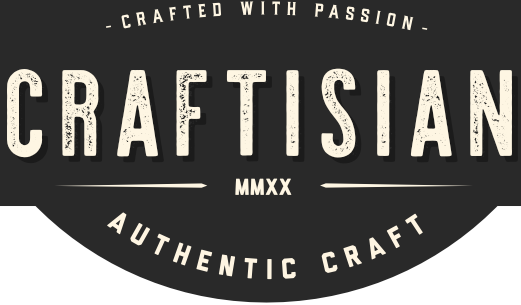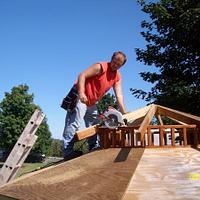MJCD
in almost 12 years
More from MJCD
Helping Amateurs Cultivate Professional Habits
I admit that I’m an amateur – I make a lot of mistakes – the same mistakes, and new ones as I try to advance my skills. So, what is it that defines me? Some Observations; and some of these have been fixed along the way…:
I don’t work from a set plan – when I have a plan, I modify it during the build, and then need to continue to modify associated parts.
I take insufficient time to professionally complete each phase of the build:
1. Parts are left 1/16th over, or under;
2. Edges and surfaces are not as clean and square as they need to be – I accept tear-out too-easily from routers and thickness planers;
3.Templates are just shy of professional-grade.
I haven’t fully thought through the build sequence: parts that will be curved, should be worked while they still have straight edges – goes back to ensuring square, when you can.
Using tools beyond their tolerances or intended purpose – such as using a circular saw to square an end, rather than a miter saw or cross-cut fence; or freehand routing something, rather than using the straight-edge guide.
I try to get too many parts from a rough board – accepting marginal ends and edges within my project.
I will not include my tools as reasons or excuses on my amateur status: they are good quality tools – well beyond my skill level; and professionalism is not defined by my next tool purchase.
I would appreciate member thoughts on additional points and suggestions to help those us trying mightily to advance to the next level.
Thanks,
MJCD
9 Comments
This pretty much sounds like you’ve been spying on me! (although I do have some pretty rinky-dink tools). I realize that is no excuse because Shipwright admits to having Harbor Freight tools and just look what he can do!
I try to get too many parts from a rough board – accepting marginal ends and edges within my project
I can especially relate to that statement. All too often I use questionable materials, too, rather than sorting through our lumber pile to find a better board. I don’t like to waste anything!
L/W
“Those who would give up essential Liberty, to purchase a little temporary Safety, deserve neither Liberty nor Safety.” Benjamin Franklin
doesn’t that sound familiar!!
I’m a “good enough” person (until it comes to my writing and then my perfectionism comes out).
JAGO - just a grandma’s opinion
I’ve tried hard to minimize my shortcomings; though, I’m only partially successful – I’m not a naturally-gifted woodworker. I purchased precise layout tools as a first step – digital calipers that I use religiously; as well as Incra and Woodpecker T-squares and rules. I’ve moved away from my miter saw, and now use a precise cross-cut fence; I’ve upped my game on sharpening chisels and planes, so that the tool does the work, rather than me forcing a dull edge through something.
I seem to knock-about pieces: not getting them off to a safe location while I’m working on another piece: I ding them, drop them; or seem to be always moving them: and then I wonder why they look like they do.
And I know all of this.
MJCD
Much too familiar…I seem to always be bumping into things in my shop, which will cause a chain reaction of things getting bumped, until something falls and hits the project I’m working on…No matter how clean the shop is, or where the project is…it WILL happen. LOL.
Very familiar to me.
Every time a project manage to see the light it’s cause for celebration :)
Abbas, Castro Valley, CA
I’m a bit OCD with my things. When I build a thing I always focus on the bits I screw up. Friends and family seem to think they are fine but I always assume they are being nice. Nothing is ever done right to me. I admit it can be hard to start a new project but I just love the smell of oak being cut so start I do and off I go down the path MJCD has described.
Anyway, the topic is cultivating professional habits. What are those? Sharpen the chisel BEFORE you use it instead of after you’ve cut your palm with it because it got stuck? It’s hard for a hobbyist to work the way a pro does. I think perhaps the idea is cultivating the skills of the masters.
Practice joinery, practice planing, practice, practice practice. My old guitar teacher said, “Practice makes better”, and the only way to practice is to get in the shop and pay attention to the mistakes you make. Make boxes you don’t want to give to people. Just make the box and store your screws in it, but dovetail the joints date it…use it. I read…somewhere…that dating your practice pieces is a really good way to judge your progress.
-- Alec (Friends call me Wolf, no idea why)
“Just make the box and store your screws in it, but dovetail the joints date it…use it. I read…somewhere…that dating your practice pieces is a really good way to judge your progress.”
I really like this idea, and am going to use it. I think that’s great!
I’m in the same boat with you. I have a number of problems such as developing the patience it takes for true precision, especially when it comes to hand tools; chisels, planes etc.
I learned about planer/jointer tear-out very quickly. I didn’t launch anything across the shop, but those little teardrops in the wood told me something was wrong. If I’m unsure of which way to run something through the planer, I make sure to set it high for the first pass then check the stock for tear-out. When I’m confident, I pencil an arrow on the edge of the board if I have to make additions passes. I also learned that sometimes it’s impossible to avoid planer tear-out, especially when the grain changes direction mid-board. In that case, I either a) leave it a little thick and get ready to do a lot of sanding, or b) find another board to use.
Attention to detail is another issue. Not that I lack attention to detail always, but that I don’t know about the details until after the fact. That can only come with experience.
What I have found that helps is to make a list of things that go wrong, then figure out how to fix them next time. I try to correct the way I do things so they don’t turn into a bad habit that will lead to failure in the future.
I’m still struggling to complete my first ever project. I chose something fairly challenging, for me anyway, so I would have more opportunity to learn. Had I started with a very simple project, and pulled it off flawlessly, I would have walked into the next project over-confident. Seeing all of the mistakes I’ve made makes me stop and think before I do something. Even then, I still manage to screw some things up, but I still learn a little more.
What keeps me going is the knowledge that nobody came from the womb a master woodworker. Everyone was here at some point. I have to pay my dues like everyone else did. The key is learning from my mistakes and changing the way I work so I don’t make that mistake again. As long as I keep that mindset, and accept the quality of what I’m making for what it is, the product of a new woodworker, I won’t get discouraged, but will improve with time and experience.
Where are the band-aids?---Pro Libertate!
Everyone — Thanks for your comments.
I’m building a rocking chair – a Hal Taylor rocker, requiring precision that is currently beyond my skill level – but this is what it’s all about. Yesterday, I realized that my jointer fence was 0.3 degrees out of square to the table: that’s 90.3 degrees; which resulting in my headset not curving properly: there are 10 edges in the headrest, meaning that it’s (10 × 0.3 =) 3 degrees off of a required 40 degrees – that’s a 7.5% error. There is no way on god’s green earth that my headrest will fit, if I leave this, as is. Last year, I wouldn’t have measured the fence to that precision; yet, I would have cursed the headrest when it didn’t fit, not knowing what went wrong.
What I have found is that you need to work the details at each stage of the build – the mechanical component of a project is a sum of its parts. The key, for me, is to enjoy working the details at each stage.
Great comments from the group – please continue to vent your thoughts. MontyJ, great comment “I don’t know about the details until after the fact” – this speaks volumes about the need to plan, and execute the plan…
MJCD














